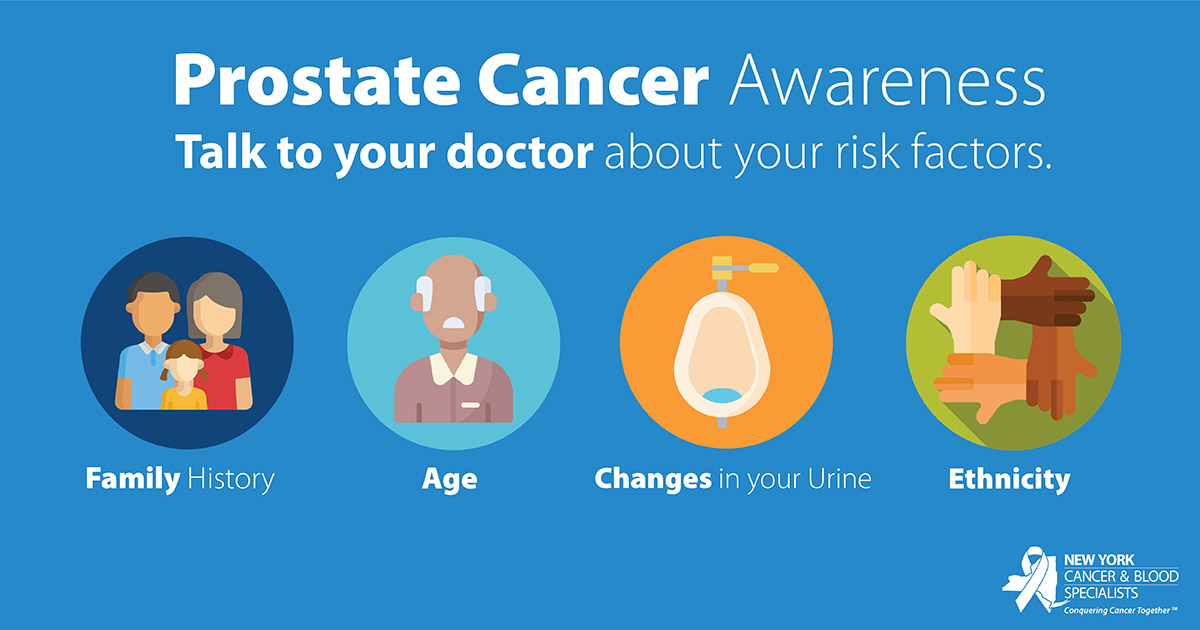The Effects of Early Prostate Cancer Treatment and Genetic Testing on Long Term Health
Prostate cancer patients may see long term benefits during their cancer care if treated early or with genetic testing. Coordinating care with a medical oncologist is essential to establish the best plan of treatment for all stages of prostate cancer. Providing a treatment plan best suited for individual needs even after treatment such as radiation or surgery, the medical oncologists at New York Cancer & Blood Specialists help prostate cancer patients maintain good health and manage side effects from treatment.
According to Jahan Aghalar, MD, hematologist and medical oncologist at New York Cancer & Blood Specialists (NYCBS), “The latest research in prostate cancer indicates that in many circumstances, utilizing newer drugs that traditionally have been used in end-stage prostate cancer, earlier on at the time of diagnosis, improves the overall quality of life, and ultimately survival from cancer as well.”
NYCBS’ physicians can be an important part of your care team to help make the best-individualized decisions for a given person's particular diagnosis to avoid over-treatment, minimizing the risks of long term complications such as incontinence, or erectile dysfunction.
“As a medical oncologist, we can offer the patient a very unbiased objective opinion to help guide them. We want to ensure that patients are not left off with life-altering side effects unnecessarily. Treatment decisions for a newly diagnosed prostate cancer patient should certainly not take on a one size fits all approach,” said Dr. Aghalar.
In recent years, genetically associated prostate cancer has also been recognized in many cases with the involvement of a category of alterations in the DNA named Homologous Recombination–Related Gene Mutations. This information has a significant impact on the later stages of the disease. Uncovering whether a patient is a carrier of one of these genes can have significant therapeutic implications. Genes that are often associated with prostate cancer also put people at risk for higher incidences of pancreatic cancer, breast cancer, and ovarian cancer.
Sometimes the therapies men undergo for prostate cancer can have deleterious effects on their heart health. Therefore, following a heart-healthy regimen which includes avoiding high fatty foods and regular exercise can be beneficial.
Dr. Aghalar concluded, “The right partner helps design treatment with the idea that prostate cancer should not limit a patient's life expectancy while maintaining the preservation of quality of life as a priority. The type of cancer, the age of the patient, and their comorbidities play an important role in their treatment plan. In addition to diagnosis, treatment, and the ability to offer genetic screenings, NYCBS provides integrated care teams, and on-site services to support you every step of the way.”
To schedule an appointment at New York Cancer & Blood Specialists, please call 1-833-CANCER9.


